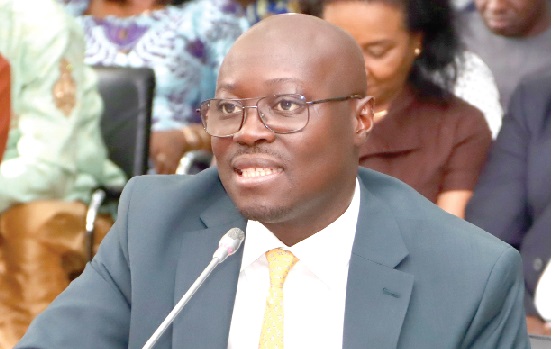
Ghana’s IMF dependency — A 66-year dance with economic bailouts
SINCE Ghana joined the International Monetary Fund (IMF) in September 1957, the country has spent more of its post-independence years under IMF supervision than managing its economy independently.
The country has entered into 17 different arrangements with the IMF over the decades, making it one of the African nations with the most frequent IMF engagements.
The journey began in the early post-independence years when Ghana sought balance of payments support during its economic transition.
Those initial engagements in the 1960s and 1970s were relatively modest, focusing on helping the young nation find its economic footing. However, by the 1980s, the relationship had evolved into something more intensive.
The 1983 programme marked a turning point. Facing an economic meltdown with triple-digit inflation, severe currency devaluation and widespread shortages, Ghana embarked on one of its most comprehensive IMF programmes.
The structural adjustment that followed brought stability but at a social cost that many Ghanaians still remember.
The pattern continued through the 1990s and into the new millennium. The 2009 global financial crisis pushed Ghana back to the IMF for a $602 million Extended Credit Facility arrangement.
Another $918 million deal followed in 2015, aimed at addressing fiscal imbalances and supporting economic reforms.
And quite recently in 2023, the country once again checked in at the IMF “rehabilitation centre” for the 17th time in a programme worth $3 billion over three years, to address severe economic challenges including high inflation, currency depreciation and debt sustainability concerns.
The latest crisis, which prompted the 2023 bailout, has perhaps been the most severe. Inflation soared above 50 per cent, while the cedi lost half its value against major currencies.
Public debt became unsustainable, and the banking sector teetered on the edge of crisis.
This recurring reliance on IMF programmes, averaging every three years, has sparked debates about Ghana’s sovereignty and ability to manage its economic affairs.
The latest bailout in 2023 as usual gave the IMF significant influence over the country’s economic policies, including approval of key fiscal measures.
The programme came with strict conditions which required the government to implement significant fiscal reforms, reduce public spending, and strengthen financial sector oversight.
These measures, while necessary, have sparked heated debates about sovereignty and economic self-determination.
Dependency cycle
The country’s experience with the IMF stands out even among African nations. While many African countries have sought IMF support, Ghana's 17 programmes represent one of the highest frequencies of engagement.
This pattern raises questions about whether IMF interventions have inadvertently created a dependency cycle rather than fostering sustainable economic independence.
The repeated IMF interventions have also had significant effects on Ghana's private sector.
During periods of economic adjustment, businesses often face higher interest rates, reduced access to credit and currency volatility.
While these measures are designed to stabilise the economy, they can lead to reduced investment and job losses in the short term.
Small and medium-sized enterprises (SMEs), which form the backbone of Ghana's economy, are particularly vulnerable to these shocks.
The human impact of IMF programmes also often extends beyond macroeconomic indicators. Austerity measures typically include reduced government spending on social services, public sector wage freezes, and subsidy cuts.
These policies, while necessary for fiscal stability, often disproportionately affect vulnerable populations.
The 2023 programme, for instance, required significant reforms to energy sector subsidies, leading to higher utility costs for ordinary Ghanaians.
Fiscal discipline
Critics have argued that Ghana’s economic challenges stem from a persistent lack of fiscal discipline, which resurfaces after each IMF programme ends.
While the IMF programmes often restore temporary stability, structural issues such as weak fiscal policies and monetary inefficiencies remain unresolved, leading the country back into financial crises.
Speaking on the Graphic Business X dialogue, Economist, Professor Godfred Bokpin, said the IMF’s interventions, including recommendations to collapse certain banks, often highlighted the inadequacies of Ghana’s domestic policy-making rather than resolve systemic issues.
The central bank, often hailed as a pillar of economic independence, has also come under scrutiny.
Accusations of compromised independence, particularly during the 2022 economic crisis, raise concerns about its ability to function effectively.
Professor Bokpin emphasises that inflation targeting, the bank’s primary tool, is only effective when fiscal discipline complements monetary policies.
Unfortunately, Ghana’s weak fiscal governance undermines these efforts, perpetuating economic instability.
He said beyond monetary policy, structural reforms and leadership accountability were critical for sustainable growth.
Fragile foundation
The Economist explained that the IMF and World Bank’s focus on short-term stabilisation often leaves Ghana with fragile economic foundations.
He said for Ghana to escape this cycle, policymakers must prioritise long-term reforms, including fiscal discipline, governance transparency, and stronger accountability mechanisms.
Ghana’s frequent reliance on the IMF, while necessary in times of crisis, highlights deeper issues of economic mismanagement.
To break free from this dependency, experts call for a holistic approach that strengthens domestic capacity and fosters sustainable development, ensuring that the country’s economy is built to withstand shocks without external intervention.